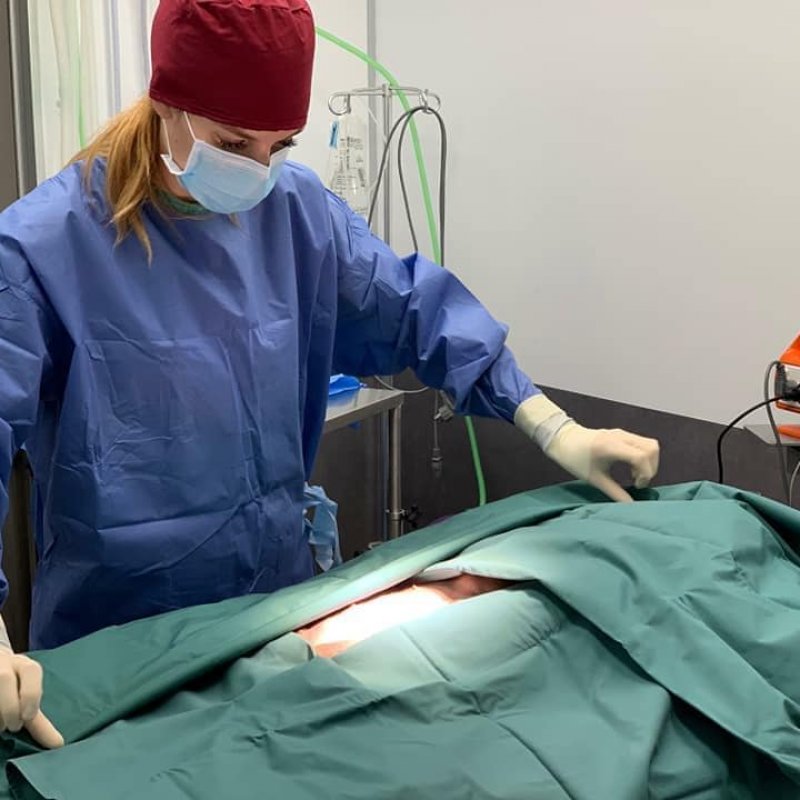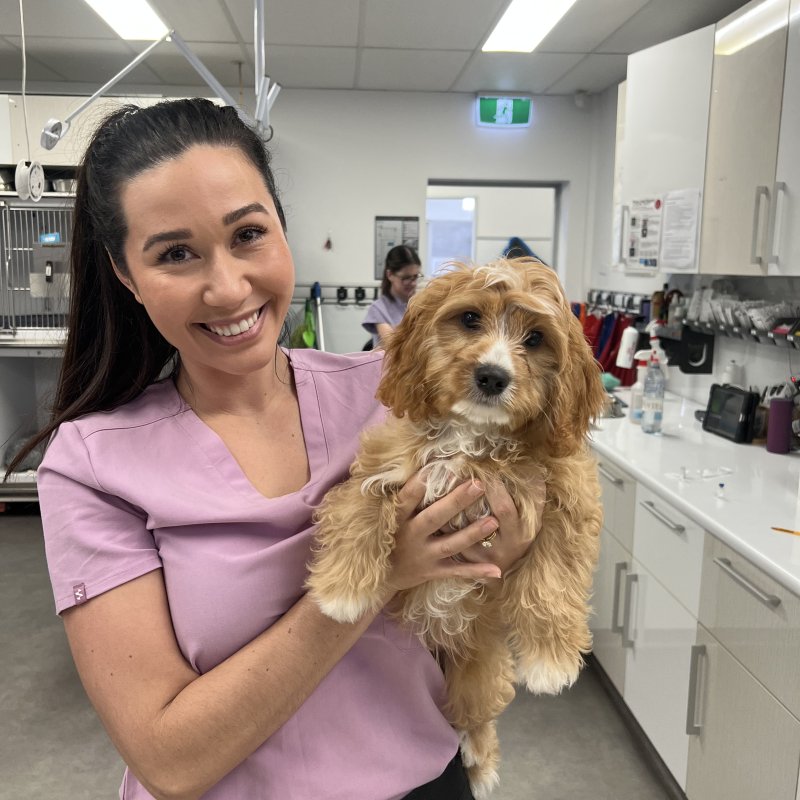Why choose us, what’s included?
– High standards of care
– Years of surgical expertise by our vets and nurses
– Pre-anaesthetic blood work
– Intravenous fluids for hydration
– Anaesthetic monitoring and one-on-one observation
– Extra pain relief during hospitalisation and on discharge
– e-Collar bucket
De-sexing animals typically leads to longer life expectancies, a decrease in common behavioural issues, and of course unwanted pregnancies. Although this is a routine procedure performed frequently at our hospital it is important to recognise that desexing your animal still involves a surgery under full anaesthetic, hospitalisation and a recovery period with strict downtime instructions to minimise the risk of post-operative complications.
The term for desexing a female animal is spaying while neutering or castration is referred to as male desexing. The process for spaying is the surgical removal of the ovaries and uterus (ovariohysterectomy) rendering the female unable to reproduce or go into a heat cycle. This is a more invasive surgery comparatively to the male version as it involves intra-abdominal incisions. When neutering, both testicles and associated structures are removed making the male infertile.
There are various health effects of the decision to leave an animal intact, or to de-sex it. Leaving a female animal intact may lead to such complications as ovarian cysts, uterine infections such as pyometra, and cancer of the reproductive tract. While males avoid the risk of developing certain medical conditions such as prostatic enlargement, cystine bladder stones, perineal hernia, testicular tumour & perianal tumour, they are less likely to exhibit aggression or display other undesirable breeding behaviours such as humping, roaming, urinary territory marking etc. Generally, it is found pets that in both sexes desexed animals have a longer lifespan of approximately 9-12 months.
The time in which you should desex your pet isn’t black and white and will vary from breed / size and species. Traditionally, desexing is performed around 6 months of age however research is suggesting that large breed dogs should have delayed desexing due to the significant risk factor for cranial cruciate ligament disease (CCLD) and hip dysplasia if desexed prior to adulthood. Studies have found that early desexing increases the risk of joint diseases in susceptible dogs. The reason being hormones are responsible for the development of joints.
It is important to discuss your personal pets circumstances with one of our vets to get their expert opinion.





